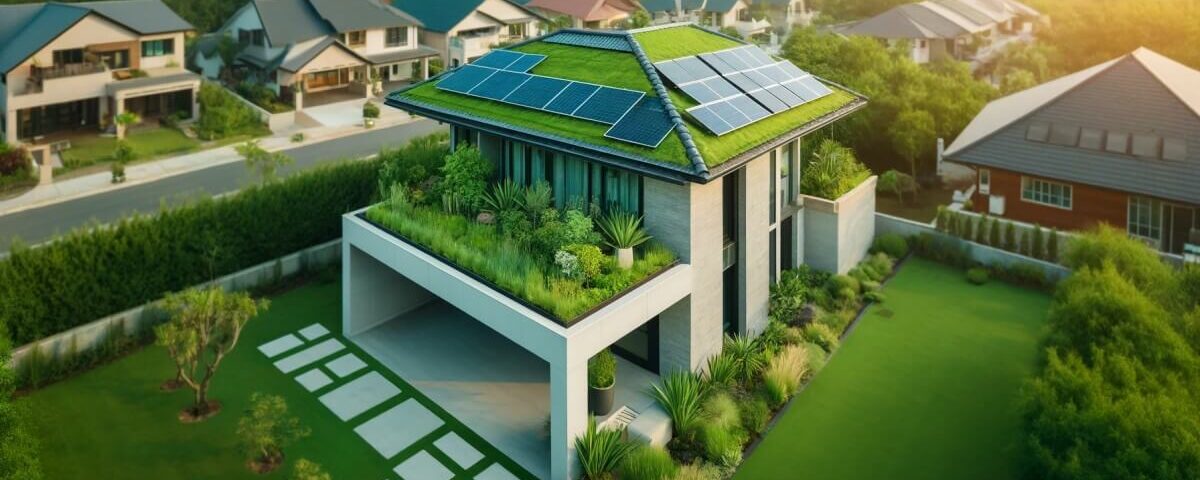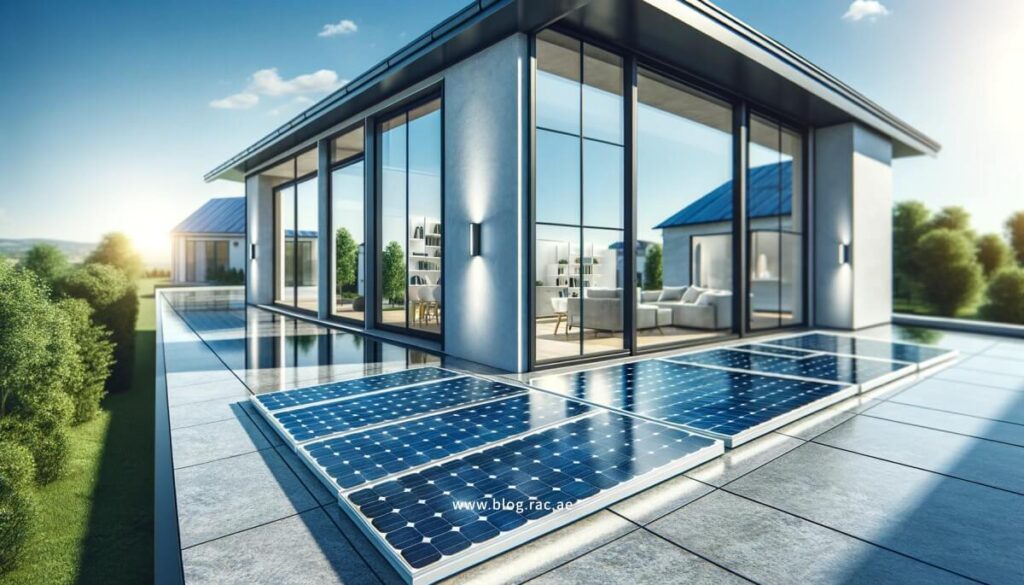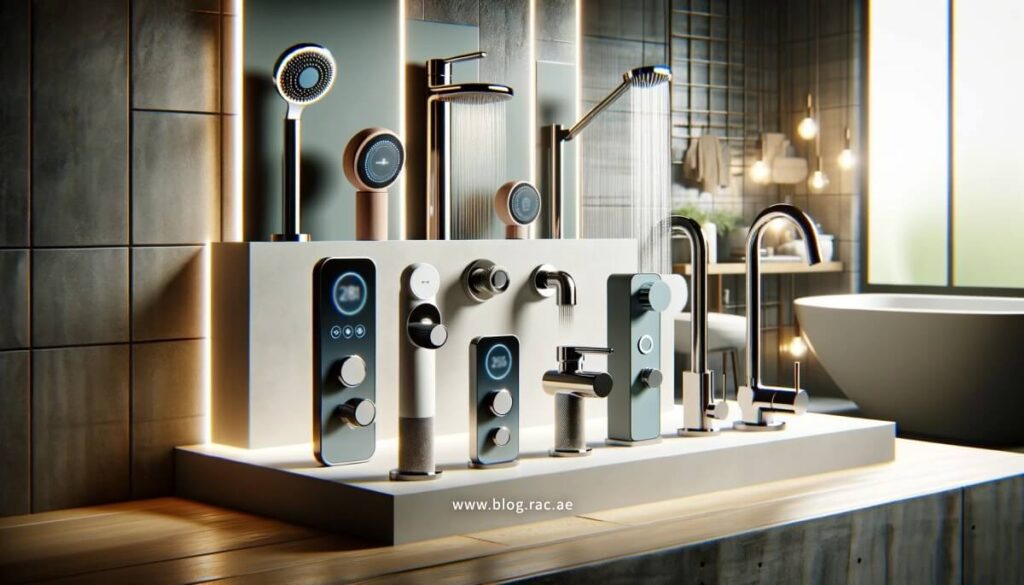
Can Plants Really Improve Your Mood? Science Says Yes!
April 15, 2024
Secrets of the Trade: Insider Tips from Leading Interior Designers
April 20, 2024Sustainable Swaps: Eco-Friendly Alternatives for Your Renovation

Embarking on a home renovation opens the door to not just enhance your living space but also to adopt practices that benefit the environment. Sustainable renovations focus on reducing environmental impact through smart resource management and the use of energy-efficient systems. These green choices not only help preserve our natural resources but also improve the energy efficiency of the home, leading to significant savings and potentially increasing property values.
Adopting sustainable practices in home renovations is crucial for contributing to environmental protection efforts. By choosing eco-friendly materials and technologies, homeowners actively participate in combating climate change and promoting sustainability, ensuring their homes are not only beautiful but also beneficial to the planet.
Table of Contents
Energy Efficiency Upgrades
Solar Panels
Integrating solar panels is a powerful step toward sustainability. These systems drastically cut electricity costs and decrease reliance on fossil fuels by harnessing renewable energy from the sun. Additionally, homeowners can benefit from financial incentives such as tax credits, which help offset the initial installation costs. Beyond monetary benefits, solar panels also increase a home’s market value, proving their worth as a long-term investment.

Eco-Friendly Windows
Switching to energy-efficient windows is a key upgrade in eco-friendly renovations. Options like double-glazed or low-E glass windows provide superior insulation, minimizing heat loss in winter and heat gain in summer. This upgrade not only enhances comfort but also reduces energy expenditure, leading to lower heating and cooling bills.
Smart Thermostats
Smart thermostats revolutionize temperature management in homes by adapting to your lifestyle and optimizing heating and cooling schedules. This technology minimizes unnecessary energy use and provides detailed insights into your consumption patterns, helping you make smarter energy choices. The result is a more efficient home with reduced operational costs.
Water Conservation Methods
Low-Flow Fixtures
Installing low-flow fixtures like toilets, showerheads, and faucets dramatically reduces water usage. These devices are designed to provide adequate water flow for daily needs while conserving water, which not only helps the environment but also decreases water bills.

Smart Taps
Smart taps enhance water conservation through advanced technologies that control flow precisely, reducing waste significantly. These fittings are ideal for reducing water consumption in high-use areas like kitchens and bathrooms, combining convenience with sustainability.
Sustainable Materials and Building Techniques
Green Roofing
Implementing green roofs transforms roof spaces into lush, oxygen-producing gardens. These roofs offer excellent insulation, reduce stormwater runoff, and enhance biodiversity. Although they require a structural assessment and maintenance, the ecological and aesthetic benefits they bring make them an attractive option for eco-conscious homeowners.
Reclaimed and Recycled Materials
Opting for reclaimed or recycled materials in renovations not only curbs deforestation but also cuts down on landfill waste. Materials like reclaimed wood can be used for everything from structural elements to decorative touches, adding a unique aesthetic and story to your home.
Key Takeaways: Eco-Friendly Alternatives for Your Renovation
Incorporating eco-friendly alternatives in your home renovation can significantly reduce your environmental impact and enhance your living space. Key strategies include integrating solar panels to harness renewable energy, upgrading to energy-efficient windows and smart thermostats for better energy management, and installing low-flow fixtures and smart taps to conserve water. Utilizing reclaimed or recycled materials and considering green roofing can further promote sustainability. These choices not only help the planet but also lead to significant savings on energy and water bills, potentially increasing property values and contributing to a healthier, more comfortable home.
Conclusion
Opting for eco-friendly renovations is a commitment to sustainable living. By integrating energy-saving technologies, water-conserving fixtures, and sustainable materials, homeowners not only reduce their ecological footprint but also enhance their living space. These green choices future-proof the home, reduce operational costs, and support global environmental conservation efforts, making them a responsible choice for today’s homeowners.
FAQs
1. What are sustainable renovations?
Sustainable renovations involve making changes to your home that reduce environmental impact through smart resource management and the use of energy-efficient systems. These practices help preserve natural resources and improve the energy efficiency of the home.
2. Why should I consider eco-friendly alternatives for my renovation?
Eco-friendly alternatives benefit the environment, reduce your energy and water bills, improve the comfort and efficiency of your home, and can increase property values. They also contribute to combating climate change and promoting sustainability.
3. How do solar panels contribute to sustainability?
Solar panels harness renewable energy from the sun, reducing reliance on fossil fuels and cutting electricity costs. They also offer financial incentives such as tax credits and can increase a home’s market value.
4. What are the benefits of energy-efficient windows?
Energy-efficient windows, such as double-glazed or low-E glass windows, provide superior insulation, minimize heat loss in winter and heat gain in summer, enhance comfort, and reduce energy expenditure, leading to lower heating and cooling bills.
5. How do smart thermostats work?
Smart thermostats adapt to your lifestyle by optimizing heating and cooling schedules. They minimize unnecessary energy use and provide detailed insights into consumption patterns, helping you make smarter energy choices and reduce operational costs.
6. What are low-flow fixtures and how do they save water?
Low-flow fixtures, such as toilets, showerheads, and faucets, are designed to provide adequate water flow while conserving water. They significantly reduce water usage, which helps the environment and decreases water bills.
7. How do smart taps contribute to water conservation?
Smart taps use advanced technologies to control water flow precisely, significantly reducing waste. They are ideal for high-use areas like kitchens and bathrooms, combining convenience with sustainability.
8. What is a green roof and what are its benefits?
A green roof is a roof space transformed into a garden, providing excellent insulation, reducing stormwater runoff, and enhancing biodiversity. Although they require structural assessment and maintenance, they offer ecological and aesthetic benefits.
9. Why should I use reclaimed or recycled materials in my renovation?
Reclaimed or recycled materials reduce deforestation and landfill waste. They can be used for structural elements or decorative touches, adding a unique aesthetic and story to your home while promoting sustainability.
10. What are the financial benefits of sustainable renovations?
Sustainable renovations can lead to significant savings on energy and water bills, increase property values, and provide financial incentives such as tax credits for renewable energy installations like solar panels.
11. How do energy-efficient upgrades affect home comfort?
Energy-efficient upgrades, such as improved insulation and smart thermostats, enhance home comfort by maintaining consistent temperatures and reducing drafts. This creates a more pleasant living environment while saving energy.
12. Can sustainable renovations increase my home’s market value?
Yes, sustainable renovations can increase your home’s market value by making it more energy-efficient, attractive to eco-conscious buyers, and potentially eligible for financial incentives that add to its overall appeal.
13. What should I consider when planning a sustainable renovation?
Consider energy efficiency, water conservation, use of sustainable materials, and overall environmental impact. Assess your home’s current condition, set realistic goals, and consult with professionals to ensure effective implementation.
14. How do sustainable renovations contribute to combating climate change?
Sustainable renovations reduce the reliance on fossil fuels, lower greenhouse gas emissions, and promote the use of renewable energy and sustainable materials. These actions collectively help combat climate change and promote environmental conservation.
15. What are some simple eco-friendly swaps I can make in my home renovation?
Simple eco-friendly swaps include installing low-flow fixtures, using energy-efficient windows and smart thermostats, choosing reclaimed or recycled materials, and integrating solar panels or green roofs. These changes can make a significant impact on sustainability.

